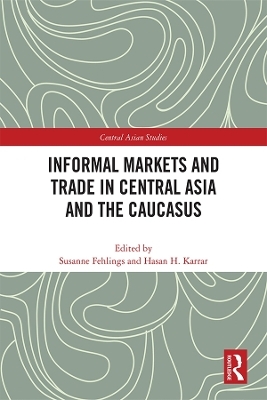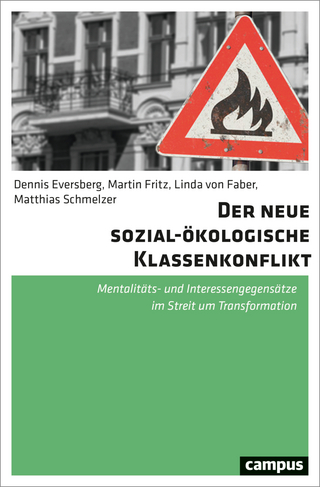
Informal Markets and Trade in Central Asia and the Caucasus
Routledge (Verlag)
978-1-032-19582-7 (ISBN)
This edited book introduces new research on informal markets and trade in Central Asia and the Caucasus. The research presented in this volume is based on recent field research in Armenia, Georgia, Kazakhstan and Kyrgyzstan, as well as Beijing, Guangzhou, Yiwu and the Xinjiang Uyghur Autonomous Region in China. The nine chapters in this book illustrate how informal markets and trade in Central Asia and the Caucasus have provided space for millions of people across the region to negotiate changes in state and society in the three decades since the breakup of the Soviet Union and the emergence of successor states.
Collectively, the book suggests that informality should be seen as a normative order for polities in Central Asia and the Caucasus for three reasons: (1) The inability – or unwillingness – of the states to measure commercial transactions. (2) The highly personalized nature of small business operations that rest on networking and social relations, oral agreements and trust. (3) Markets and bazaars being embedded within states in which clientelism frequently thrives.
This book is a significant new contribution to the study of trade and informal markets in Central Asia and the Caucasus, and will be a great resource for academics, researchers and advanced students of Sociology, History, Politics, Business, Economics, Social Anthropology and Geography.
The chapters in this book were originally published as a special issue of the journal, Central Asian Survey.
Susanne Fehlings is Senior Researcher at the Frobenius Institute for Research in Cultural Anthropology, Frankfurt am Main. Her regional focus is the Caucasus. She specializes in urban and economic anthropology, the anthropology of the state, and research on bazaars, trade activity and entrepreneurship. Hasan H. Karrar is Associate Professor and Department Chair, Department of Humanities and Social Sciences at the Lahore University of Management Sciences, Pakistan. He is a specialist of China and Central Asia with a special interest in new economic and political linkages since the Cold War.
1. Negotiating state and society: the normative informal economies of Central Asia and the Caucasus 2. Trading in Dordoi and Lilo bazaars: frontiers of formality, entrepreneurship and globalization 3. The traders of Central Bazaar, Astana: motivation and networks 4. The formal side of informality: non-state trading practices and local Uyghur ethnography 5. Markets at sacred sites: the globalized mobility and informality of the Armenian religious fairs 6. The bazaar in ruins: rent and fire in Barakholka, Almaty 7. Doing business in Yabaolu Market, Beijing: (inter-)ethnic entrepreneurship, trust and friendship between Caucasian and Chinese traders 8. Business 2.0: Kyrgyz middlemen in Guangzhou 9. Trade ‘outside the law’: Uzbek and Afghan transnational merchants between Yiwu and South-Central Asia
| Erscheinungsdatum | 31.01.2024 |
|---|---|
| Reihe/Serie | Central Asian Studies |
| Verlagsort | London |
| Sprache | englisch |
| Maße | 174 x 246 mm |
| Gewicht | 453 g |
| Themenwelt | Sozialwissenschaften ► Soziologie ► Spezielle Soziologien |
| Wirtschaft ► Volkswirtschaftslehre ► Makroökonomie | |
| ISBN-10 | 1-032-19582-7 / 1032195827 |
| ISBN-13 | 978-1-032-19582-7 / 9781032195827 |
| Zustand | Neuware |
| Informationen gemäß Produktsicherheitsverordnung (GPSR) | |
| Haben Sie eine Frage zum Produkt? |
aus dem Bereich


